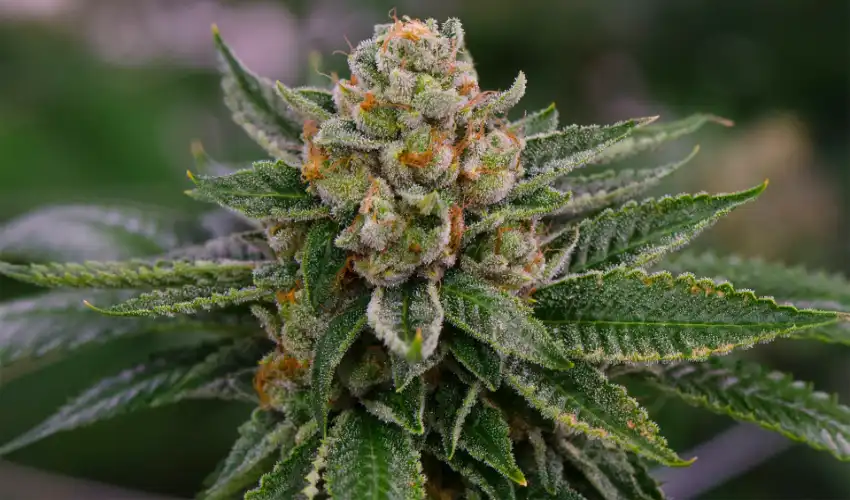Cannabidiol, commonly known as CBD, has garnered significant attention in recent years, particularly for its potential therapeutic benefits. Despite its popularity, there are numerous lesser-known facts about CBD, including CBD flower, that even regular users might find surprising. This article explores some of these unknown facts, shedding light on the complexities and nuances of this fascinating compound.
1. CBD is Non-Psychoactive, But It’s Not Entirely Inactive
One of the most well-known aspects of CBD is that it doesn’t produce the “high” associated with its cousin, THC (tetrahydrocannabinol). However, this doesn’t mean that CBD is entirely inactive in the brain. While it doesn’t cause psychoactive effects, CBD does interact with the brain’s receptors in ways that can alter mood, anxiety, and cognition. It has been found to modulate the effects of various neurotransmitters, including serotonin, which is closely linked to mood regulation.
2. CBD Can Interact with Prescription Medications
Many people believe that because CBD is a natural product, it’s completely safe to use with other medications. However, CBD can interact with certain prescription drugs, particularly those that are metabolized by the liver. CBD inhibits the activity of the cytochrome P450 enzyme, which is responsible for metabolizing many drugs. This can lead to higher levels of the medication in the bloodstream, potentially causing unwanted side effects or even toxicity. It’s essential for anyone considering CBD, especially if they are on other medications, to consult with a healthcare provider first.
3. The Source of CBD Matters, Especially CBD Flower
Not all CBD is created equal, and the source of the CBD can significantly impact its quality and effectiveness. CBD can be extracted from either hemp or marijuana, both of which are varieties of the Cannabis sativa plant. Hemp-derived CBD, including CBD flower, contains less than 0.3% THC, making it legal in many places and non-psychoactive. However, marijuana-derived CBD can have higher levels of THC, leading to potential legal issues and psychoactive effects. Furthermore, the cultivation practices, extraction methods, and product formulations all play crucial roles in determining the purity and potency of CBD products.
4. CBD Flower May Affect Your Appetite Differently Than THC
While THC is known for increasing appetite, often referred to as the “munchies,” CBD’s effect on appetite can vary. Some studies suggest that CBD, including CBD flower, can suppress appetite, making it a potential option for those looking to manage weight. On the other hand, in cases where appetite stimulation is needed, such as in individuals undergoing chemotherapy, CBD may help reduce nausea and vomiting, indirectly supporting appetite. The exact effect of CBD on appetite seems to depend on the individual’s physiology and the specific circumstances.
5. CBD’s Legal Status is Complicated
Despite CBD’s widespread availability, its legal status is not as straightforward as many believe. While hemp-derived CBD, including CBD flower, is legal at the federal level in the United States under the 2018 Farm Bill, the legality of CBD products can still vary from state to state. Some states have specific regulations that may limit the sale or use of CBD, particularly in foods and beverages. Additionally, international laws regarding CBD vary widely, with some countries allowing it only for medical use, while others have banned it altogether.
6. Not All CBD Products Are Created Equal
The CBD market is largely unregulated, which means that product quality can vary significantly. Some CBD products, including those made from CBD flower, may not contain the amount of CBD advertised on the label, while others may be contaminated with harmful substances such as pesticides, heavy metals, or synthetic cannabinoids. Third-party testing is crucial for ensuring product safety and efficacy. Consumers should always look for products that provide a Certificate of Analysis (COA) from an independent laboratory, confirming the product’s CBD content and absence of contaminants.
7. CBD Flower Could Have Antioxidant Properties
Emerging research suggests that CBD, including CBD flower, may have potent antioxidant properties, potentially helping to protect cells from oxidative stress and free radical damage. This could have implications for a variety of health conditions, including neurodegenerative diseases, where oxidative stress plays a significant role. While more research is needed, these findings add another layer of potential benefits to CBD’s already impressive profile.
8. CBD May Support Heart Health
Some studies indicate that CBD, including CBD Flower UK could have benefits for cardiovascular health. CBD has been found to reduce blood pressure in response to stress, and its anti-inflammatory properties may help protect the heart and blood vessels. However, these effects are still being studied, and it’s important to note that CBD should not be used as a substitute for traditional treatments for heart conditions.
Conclusion
CBD, including CBD flower, is a complex compound with a wide range of potential benefits and considerations. As research continues to uncover more about CBD’s effects and mechanisms, it’s essential to approach its use with knowledge and caution. Whether you’re a seasoned CBD user or just curious, understanding these lesser-known facts can help you make more informed decisions about incorporating CBD into your wellness routine.
